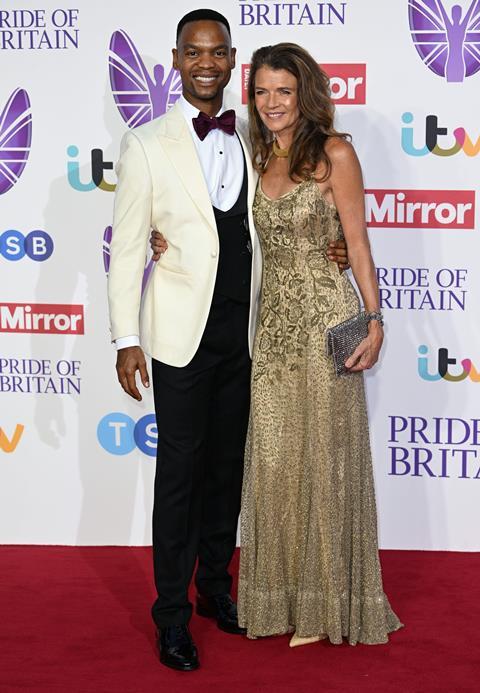Writer, Lucy Jeremiah comments on how Annabel Croft’s Strictly dance, dedicated to her husband who died in May, was a beautiful picture of how sorrow and joy can go hand in hand

As the Strictly Come Dancing competition heads towards its conclusion, I’m recalling that a few weeks ago I sat on my sofa, pyjamas on and glass of wine in hand, watching as Annabel Croft danced her tribute to her late husband Mel, who died suddenly earlier this year. And I sobbed. I howled.
My glasses steamed up with tears. It was profoundly moving to watch as Annabel danced through her grief. The pain etched on her face as she finished was almost inappropriately raw for Saturday night entertainment. And yet there was joy in the dance too, as she twirled and flew through the air with gravity-defying lifts.
And it caused me to wonder at the capacity of humans to feel joy and grief in equal measure – and how that’s actually at the heart of the gospel. Joy and sorrow mingle together in the astonishing, sacrificial, world-changing action of Jesus on the cross.
It was profoundly moving to watch as Annabel danced through her grief.
So it’s something of a comfort to know that the great Story we are living in – God’s work of reconciliation and restoration – allows room for joy, and for sorrow.
I’ve just become a mum to two children through adoption, and again here I see it. Joy in all the moments our children make us laugh just by being themselves – as our four year old animatedly tells me a made-up story about a giraffe called Kevin, or our one year old yet again tries on Daddy’s shoes, looking like a tiny clown.
Sorrow in the grief and loss our children have already experienced, and in the fact that our family is formed from the precious pieces of another dear family that, through harsh and devastating circumstances, was unable to stay together.
Somehow, the Bible tells me these things can exist together, and this gives me hope.
Somehow, the Bible tells me these things can exist together, and this gives me hope.
Read more on grief
Holding grief and joy together
The dream that turned a widow’s grief into a heavenly story of hope
We live in the liminal space between Jesus’ great triumph over pain and grieving, and the time when he returns to wipe it away for good. All of us sit in the painful paradox of things not being as they should be. In this space, we celebrate and commiserate, we laugh and we cry, we enjoy and we long for something more. Learning to live in this place is part of the calling of all Christians; acknowledging agonising grief and holding on to audacious hope.
Like Annabel’s performance, it takes practice, but it can be beautiful.































No comments yet